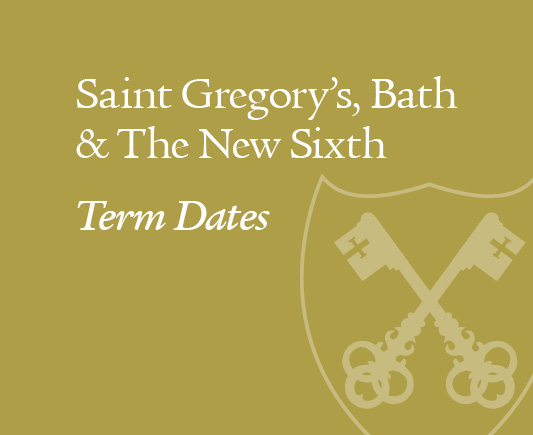Head of Faculty: Mrs C Richards
Head of Department: Miss H Townsend
Level of teaching: Key Stage 3, Key Stage 4, Key Stage 5 at The New Sixth
In studying Music, students gain a variety of practical and creative thinking skills that will help to prepare them for life-long learning. Students are challenged to constantly integrate the doing, the thinking and the feeling and to grow in confidence and self-esteem.
Music is a distinct art form with its own history, body of knowledge, aesthetic values and cultural contexts that can help students to gain an understanding of the world they inhabit. We aim through Music to enable students to respect other people. Students develop their understanding of the Gospel Values, explore their own identity and express their responses. Students are encouraged to reflect upon the work of the department and act as ambassadors in the wider community.
We are committed to making our lessons relevant, interesting and filled with enthusiasm in order to inspire students and strive for excellence. The quality of teaching and learning in Music will develop students’ sense of personal fulfilment and help them to achieve a positive sense of self.
In Music, students are encouraged to work well with others and shine to achieve personal goals. We are committed to making our lessons relevant and interesting in order to develop and encourage our students, in which we strive for excellence to meet and exceed our targets.
The quality and the content of teaching and learning in Music will prepare students for life after St Gregory’s, in whatever form that may take.
Instrumental Lessons:
- Brass
- Clarinet
- Voice
- Violin
- Viola
- Flute
- Guitar
- Cello
- Piano
- Drum Kit & Percussion
- Saxophone
Key Stage 3 (Years 7-9)
Key Stage 3 Music has been designed to encourage all students to develop in a safe environment, a wide range of musical skills through the study and appreciation of music from many styles and cultures. The key areas of focus throughout the course are Performance, Composition and Listening/Appraising Music. This balance enables every student the opportunity to gain an insight into a variety of musical genres as well as develop crucial skills in which to prepare for furthering their musical studies at Key Stage 4.
Year 7 Overview
- Exploring the voice and different styles of singing
- Keyboards – Learning notation and the elements of music
- Superhero composition – using musical elements to create music
- Ukuleles – Learning to read tab, ensemble playing and accompaniment skills
- Renaissance – Piano duets – timing and exploring different eras of music
- Music in Advertising – Understanding jingles and how music can persuade
- ‘Instruments of the Orchestra’ – from their early beginnings to the present day!
Year 8 Overview
- Blues music – History of the Blues and improvising melodies
- Classical Music – traditions of the Classical Era
- Impressionism – how to create mood in music
- African Drumming – Exploring music of other cultures and traditions associated with it
- Gamelan and fusions – music from other cultures and learning to fuse two genres together using computer software
- Rock Music – learning rock instruments and learning to play as a band
Year 9 Overview
- Pop music – building on band work in Year 8, playing popular music
- ‘Film Music’ – listening, performing and composing music for a given genre of film
- Pop music composition – how to write pop songs
- Reggae – Learning traditions associated with Reggae and recreating pieces in that style
- Performing Arts Project – (two terms – one prep, one individual work)
Key Stage 4 (Years 10-11)
Course Code: GCSE Music Edexcel 1MU0
Exam Board Specification: http://qualifications.pearson.com/en/qualifications/edexcel-gcses/music-2016.html
This course encourages students to become effective and independent learners and critical and reflective thinkers. It allows the use of music technology in performance and as a compositional tool. It is a good preparation for further musical study and provides a foundation for Advanced Subsidiary and Advanced GCE in Music and Music Technology.
This course aims to: –
- Encourage students to be inspired, moved and changed by following a broad, coherent, satisfying and worthwhile course of study;
- Develop broader life skills and attributes, including critical and creative thinking, aesthetic sensitivity, emotional awareness, cultural understanding, self-discipline, self-confidence and self-motivation;
- Enable students to engage actively in the study of music;
- Develop musical skills and interests, including the ability to make music individually and in groups;
- Enable students to understand and appreciate a range of different kinds of music.
A wide range of musical styles will be encountered throughout the course, which will be divided between practical and written study. The course is divided into three units.
Unit 1 – Performing Music
One solo and one ensemble performance.
Unit 2 – Composing Music
Two compositions, or two arrangements,
or
One composition and one arrangement.
Key Stage 5 (Years 12-13)
Course Code: A Level Music Edexcel
Exam Board Specification: https://qualifications.pearson.com/en/qualifications/edexcel-a-levels/music-2016.html
Recommended Entry Requirements
- Grade 6 GCSE Music
- Ability to play an instrument including voice to Grade 5 standard
- Grade 5 Theory of Music strongly recommended.
Why Music?
Music is stimulating and enriching and provides an excellent basis for life-long learning. A Level will broaden your musical experience and interests and foster your imagination and creativity. It is an academic subject that will compliment other A Levels and is highly regarded by Universities.
Throughout the course, you will develop your individual musical interests through performing and composing and will broaden your musical horizons and analytical skills across six varied Areas of Study: Vocal Music, Instrumental Music, Music for Film, Popular Music and Jazz, Fusions, and New Directions.
Assessment
30% – Component 1: Performing
30% – Component 2: Composing
40% – Component 3: Listening / Appraising
Recommended Reading
Edexcel Student Guide to A level/AS Music;
Edexcel A Level Music Revision Guide
Resources & Links:
YouTube: https://www.youtube.com/watch?v=4NiXFOVc64o&list=PLxdwFp5zxZ04JWu16c4jedo2oTAk6vAXO
YouTube: https://www.youtube.com/watch?v=GtHg3DS1Bgg
YouTube: https://www.youtube.com/watch?v=JPogdlxjWgA&list=PLSSqb164OqxhEzlcTX4dh7JIKB7MIC6Kh
Music Theory: www.musictheory.net
BBC Bitesize: https://www.bbc.co.uk/bitesize/examspecs/z6chkmn
Enrichment:
The Music Department is an integral part of the increasingly cross-collaborative nature of the Performing Arts Faculty with a thriving extra-curricular programme both during and after school. Visit our Clubs & Enrichment page for timetables.






